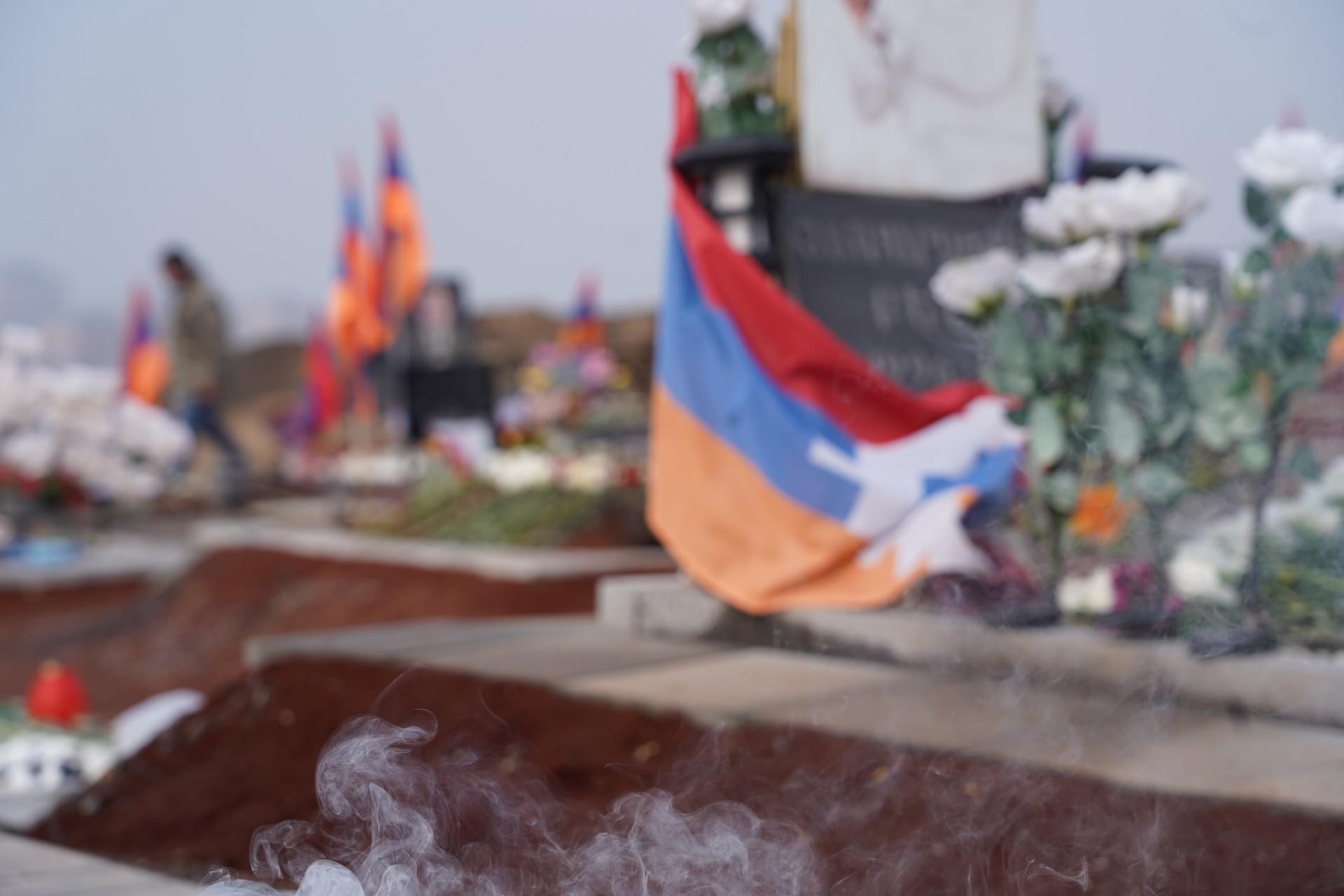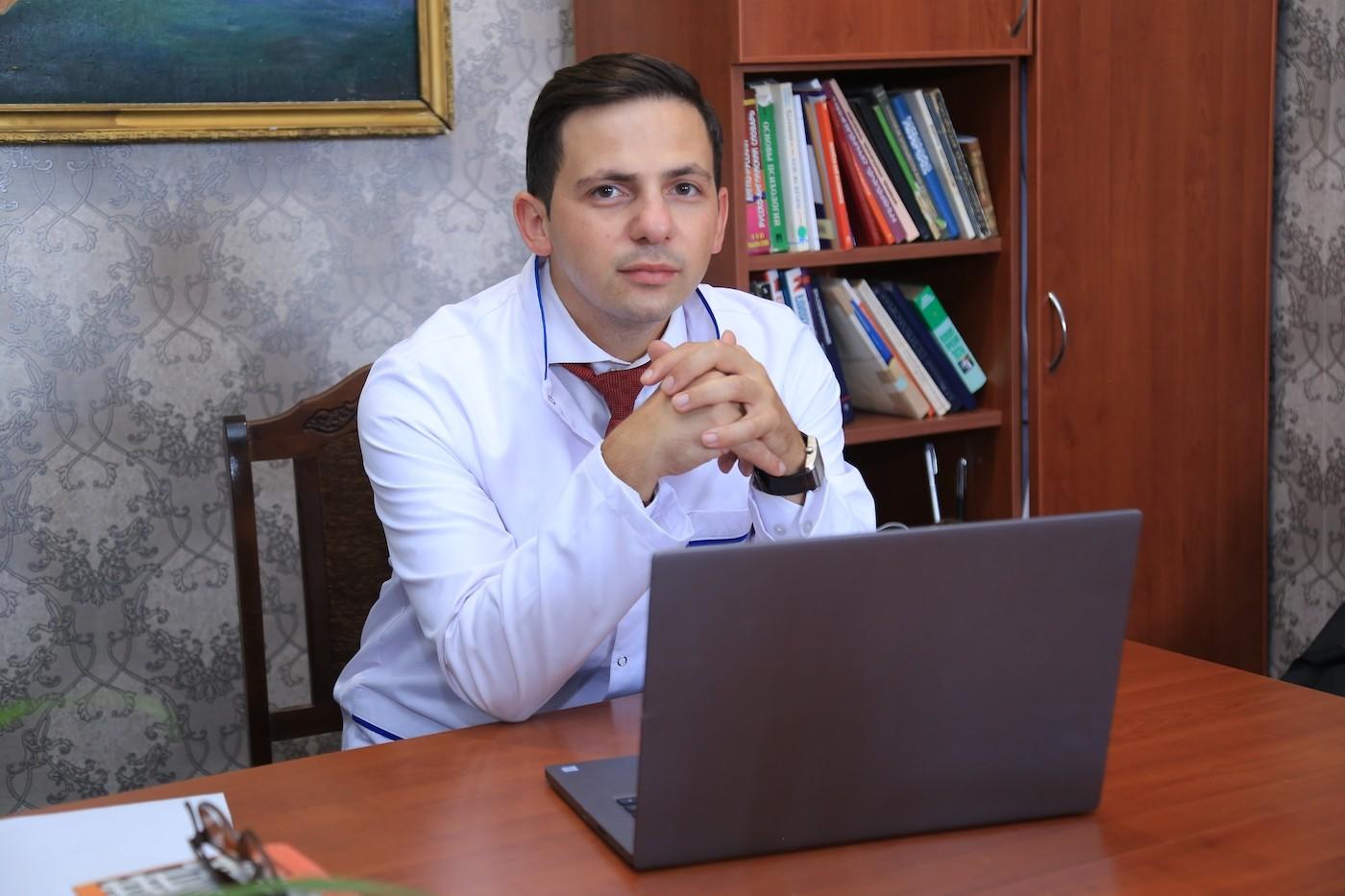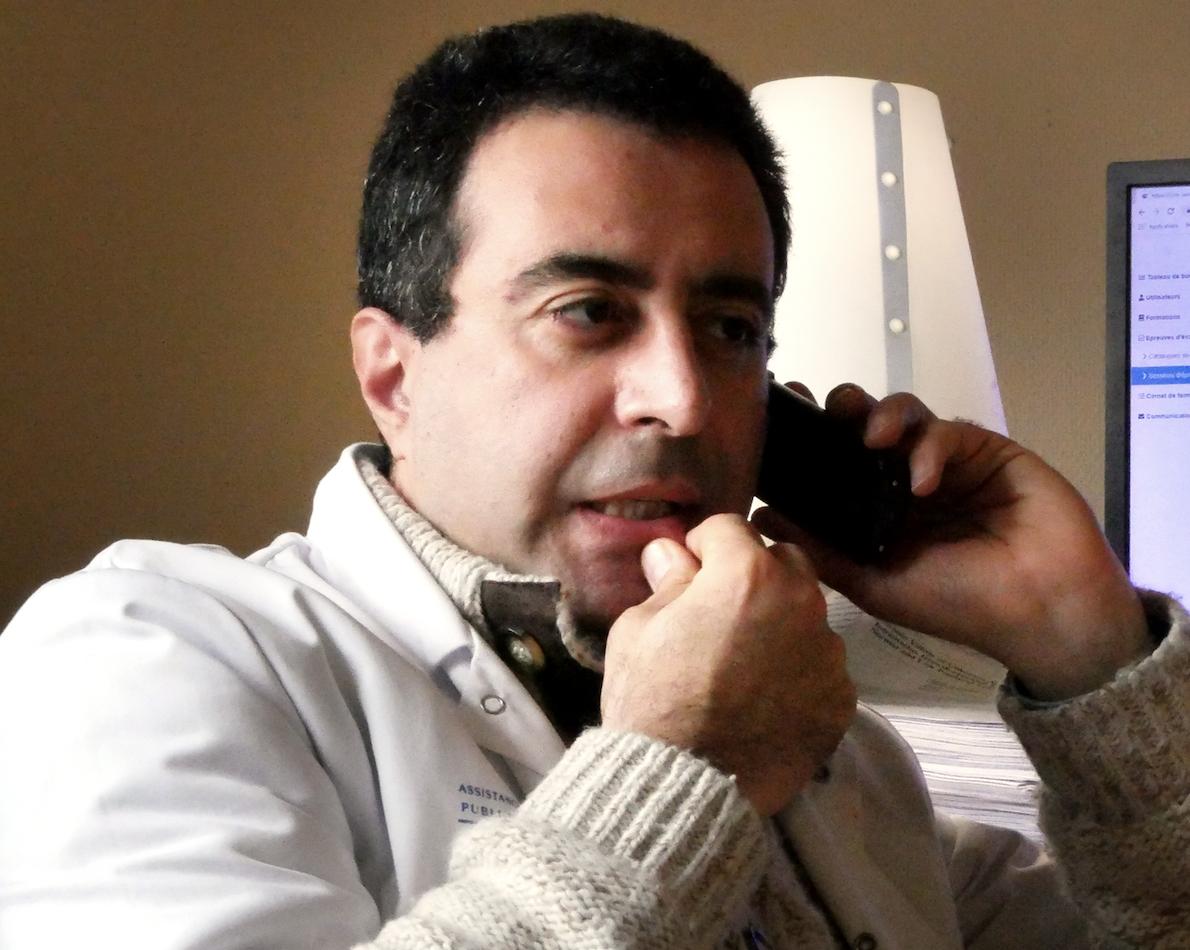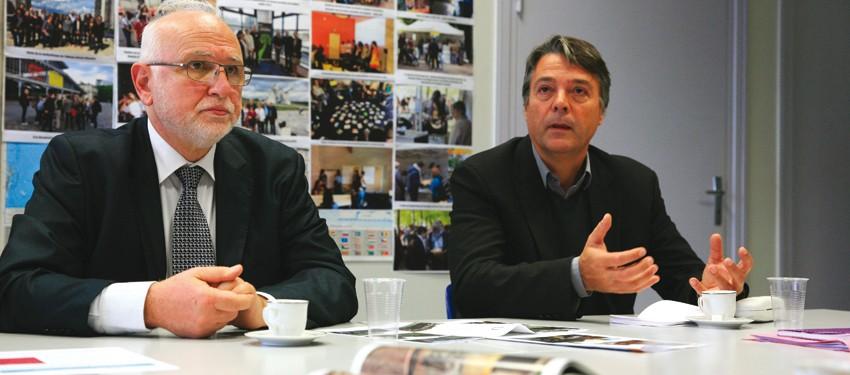
Healing from Collective Trauma: Mental Health Challenges in Post-War Armenia
By Astrig Agopian
The recent war in Karabakh traumatized many soldiers and civilians, but it also challenged local mental health professionals who were not prepared for such a conflict. Azerbaijan’s use of new weapons and the mobilization of young and inexperienced Armenian soldiers created unprecedented collective distress. Santé Arménie, a collective of more than 300 doctors, surgeons and health professionals, including medical health experts, from France and Armenia mobilized at the outbreak of the fighting, is determined to help Armenia get back on its feet.
“It was interesting but very complicated for mental health professionals because we did not have war-related experience and we were unsafe as well, in danger of imminent death,” says Artur Tonoyan, psychologist and Director of the Armenian Psychoanalytical Association.
He worked on the frontline during the whole conflict in Nagorno-Karabakh and is still working with soldiers in a rehabilitation center in Dilijan.
Assessing needs on the ground
“I have a lot of experience, and I have worked in prisons before. But war trauma is something else. Something so harsh that it had effects on us too. I know that some psychologists had to leave the frontline because it was too hard for them,” says Tonoyan.
The psychologist says it was also thanks to the help of colleagues in Armenia and France, who were doing therapy with them, that kept him and his colleagues working.
The mental health sector in Armenia was already weak before the conflict, and it was definitely not prepared for a new war. There are 176 psychiatrists in the country, and because psychological care is not regulated, no one knows how many psychologists there are.
Tonoyan says that in the past Armenian authorities downplayed the importance of psychological help, but this time, it was the government that requested their assistance. However, according to the Armenian Psychiatric Association, the authorities are not financially backing mental health treatments for soldiers and civilians following the war.
In response to Hetq’s inquiry to the Armenian Ministry of Health regarding psychological care for those traumatized by the recent Karabakh war, Vahe Hakobyan, Deputy to the Ministry’s Chief Secretary wrote: "The ministry has not financially assisted programs designed to provide mental health care to Artsakh residents, to those who fought in the war, or to the families of the victims."
Many professionals felt useless far from the fighting. Lilit Mnatsakanyan, a psychologist working with civilians in Yerevan, decided to go and help during the war.
“This war was no ordinary war. It was quite different from the former ones because there were weapons used this time that are forbidden, like white phosphorus bombs and drones,” says Mnatsakanyan.
“Drones are like tormentors. They trigger extremely intense fear and distress. When I talked with soldiers on the frontline, they told me, very shocked and almost disappointed, that the Azerbaijanis did not come to fight, that they came to annihilate them. There was no soldier-to-soldier fighting. It was dehumanizing, and no war rules were respected. There was this feeling that it was not a war between two armies. The asymmetry was so important that it was just full-on destruction. And that feeling is extremely traumatic,” says the psychologist.
Tonoyan says that early on, they realized they needed training and new skills, like EMDR (Eye Movement Desensitization and Reprocessing) therapy. He says that the efficiency of these tools has been proven in other wars.
EMDR (Eye Movement Desensitization and Reprocessing) is a psychotherapy method that makes the patient recall distressing images, while the therapist is directing the patient in a bilateral stimulation, like side-to-side movements.
“These will be useful in Armenia in the long-term, because unfortunately, we could have new wars and we are a territory prone to earthquakes too,” says Tonoyan.
Providing help from the diaspora
“The will to start this project started in the middle of the war,” says Pr. Arsène Mekinian from Paris. Specializing in internal medicine, he coordinates the group Santé Arménie.
“The collective was born, at first, very spontaneously. It was informal with about fifteen people, but then it started growing every single week, we now have 250 professionals from France and 100 in Armenia. We realized early on that one mission is just a drop in the ocean,” says Mekinian.
The group created several task forces by specialties. They allow Armenian and foreign doctors to cooperate, assess the needs, and then provide training, send medication or new tools.
“The goal is to be more than a one-time thing, to be able to really change the health system, make it really better, improve it in the long-term,” says the professor.
“There is a desire to unite and to get involved in the majority of the diaspora that I have never seen before. We still receive messages every day from volunteers who want to come and help. This spirit seems to be new and triggered by the war. We had no problem at all to recruit people from the diaspora, to coordinate with organizations that are way older and have been doing their things for years. Before it was a bit harder to make people get along,” says Arsène Mekinian.
“People need to understand that it could take fifty years for the country to get over this trauma. There are two stages: the immediate wartime psychological help, for soldiers and civilians caught up in the war, and then the longer and insidious Post-traumatic stress disorder (PTSD),” says Pr. Patrick Alecian, a French psychiatrist who helps coordinate Santé Arménie’s mental health task force.
Post-traumatic stress disorder (PTSD) can be recognized through several symptoms, including nightmares, vivid flashbacks of a traumatic scene, sudden mood changes, intrusive thoughts and images, intense distress triggered by a certain sound or word. It is often expressed through physical sensations like sweating, nausea, trembling or pain.
“There was a strong rise in nightmares for soldiers as well as civilians,” says Lilit Mnatsakanyan. “For example, while someone is sleeping, you think that he cannot be actively thinking about atrocities, but the brain is actually making him feel like he is back on the frontline. It’s always there.”
PTSD is not necessarily related to war and can result from a trauma caused by any form of violence or natural disasters. The devastating 1988 earthquake in Armenia exposed a lot of people to severe mental disorders and depression. So Armenian psychologists and psychiatrists know about those symptoms.
However, according the report published in 2017 by Dainius Puras, UN Special Rapporteur on the right of everyone to the enjoyment of the highest attainable standard of physical and mental health, there is a “vicious cycle in Armenian mental health system, when people with mental health conditions are too easily and too often hospitalized in psychiatric hospitals, tend to be overmedicated, and then confined for long periods of time in large institutions, labelled as chronic patients.”
The first and urgent goal is to help soldiers, some of whom are already back on the frontline, to finish their military service. But the displaced from Karabakh, as well as civilians who lost relatives or friends, are also in need of assistance. People already suffering from unrelated mental health issues had new anxieties.
“The war brought unexpected changes in the therapeutic process for all patients,” observes psychologist Mnatsakanyan. A simple sound can immediately remind a person with PTSD of a traumatic scene and make them have panic attack.
“We also quickly realized we needed to support the mental health professionals themselves in Armenia. Many of them, who worked on the frontlines with soldiers, and then with displaced civilians and relatives of dead or missing people, suffered from vicariance,” says Pr. Alecian. Vicariance is the act of experiencing an event by proxy through an empathic link with the person who lived the event firsthand. “That means that they were basically affected themselves by all the traumatic things they witnessed or were told.”
Mnatsakanyan was one of those psychologists for whom it was a difficult experience.
“There was definitely a vicariant trauma. Being inside a country at war is already traumatic in itself. I also have to admit that I created this defensive optimism. I was telling myself we would win. I really believed it. I now realize we had no chance at all to win and it was a defense mechanism so that I could keep on living and working,” she says.
She joined the Santé Arménie project and is extremely grateful to her colleagues.
“During the conflict, we were doing online training with colleagues from France, Canada, the U.S. Many Armenians from the diaspora, as well as non-Armenians, helped us so much. It was amazing. Some people here say that other countries did not help Armenian during this war. It might be true for governments, but not for people. People helped us,” says Mnatsakanyan.
A long process
The consequences of mental health issues triggered by this war will be measured in the long run. There was a collective high level of distress during the conflict, and individually, many cases of severe depression after the defeat.
“There was clearly a strategy from the Azerbaijani side,” says Dr. Alecian. The fact that they also made videos and photos of atrocities and sent them to families or Armenians in the diaspora. That is a strategy to have an effect on the psyche of the other side.”
Accepting the fact that mental health matters and working on it with the new therapies offered by international and local actors is key according to Dr. Alecian. But it is not enough, according to Lilit Mnatsakanyan.
“After this experience, I can say I became a new specialist. A new person even,” she says. I understood with this conflict that psychology on its own is not enough to help us. We need to create bridges with other fields, like it is done at Santé Arménie. And we need a good quality of life - that’s on the state and society. Soldiers and civilians need opportunities to work, to create, to have a family, to have a life that will be healed after all this.”
(Astrig Agopian is a French-Armenian journalist from Paris, currently based in Yerevan. Usually running around with a camera looking for the best light, but now she’s exchanged it for a pen and a microphone.)
 Videos
Videos Photos
Photos



Comments (2)
Write a comment